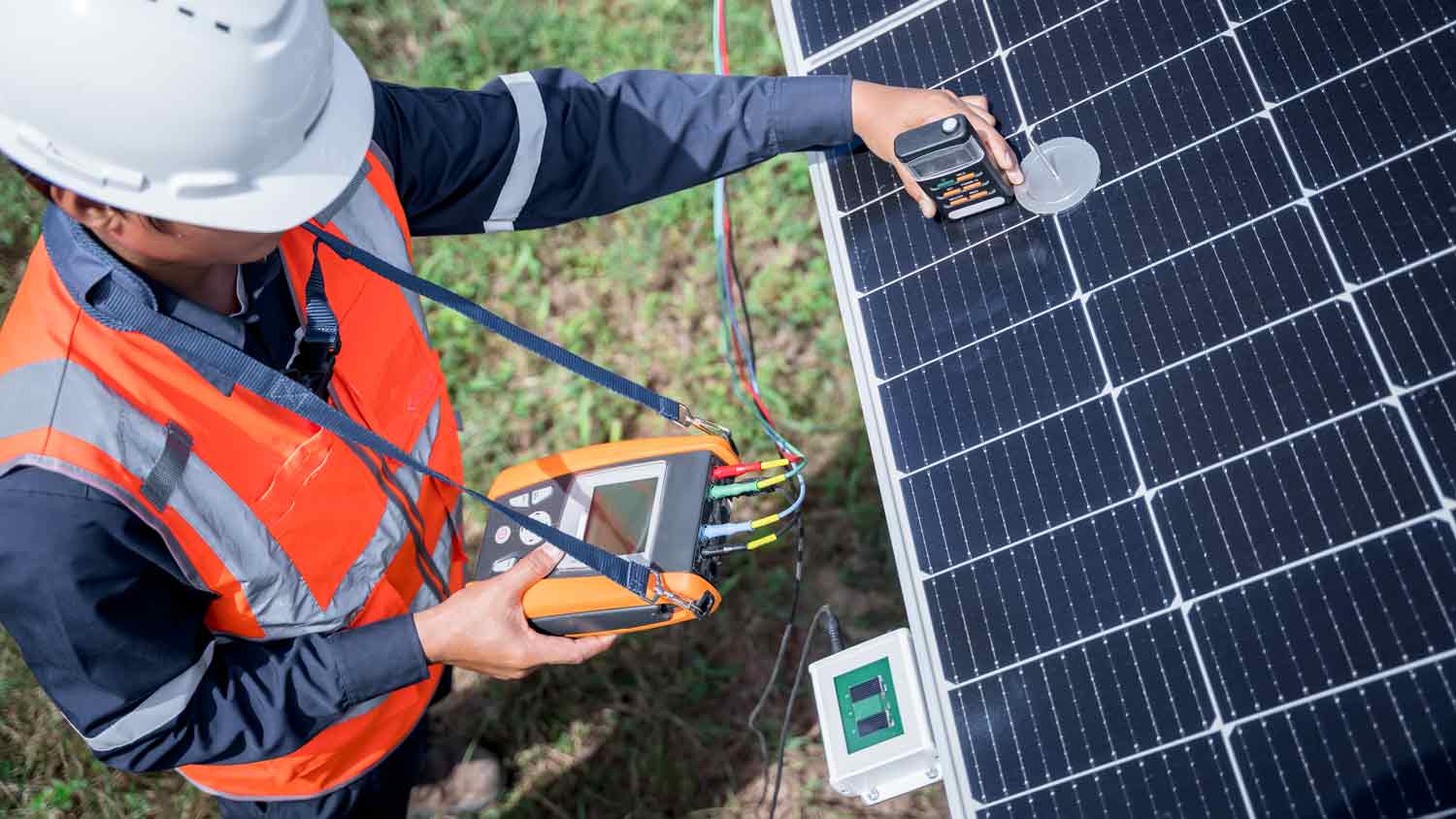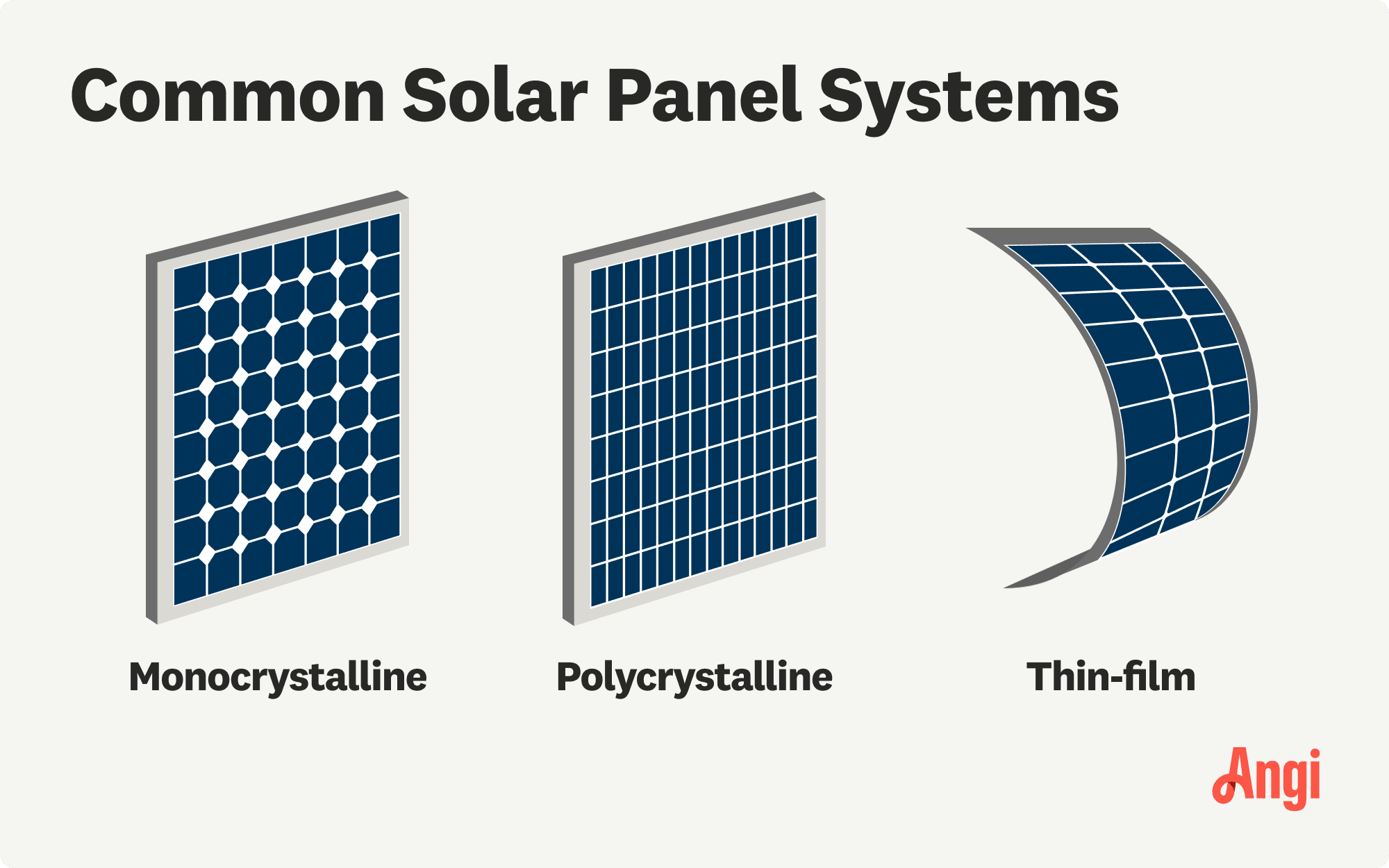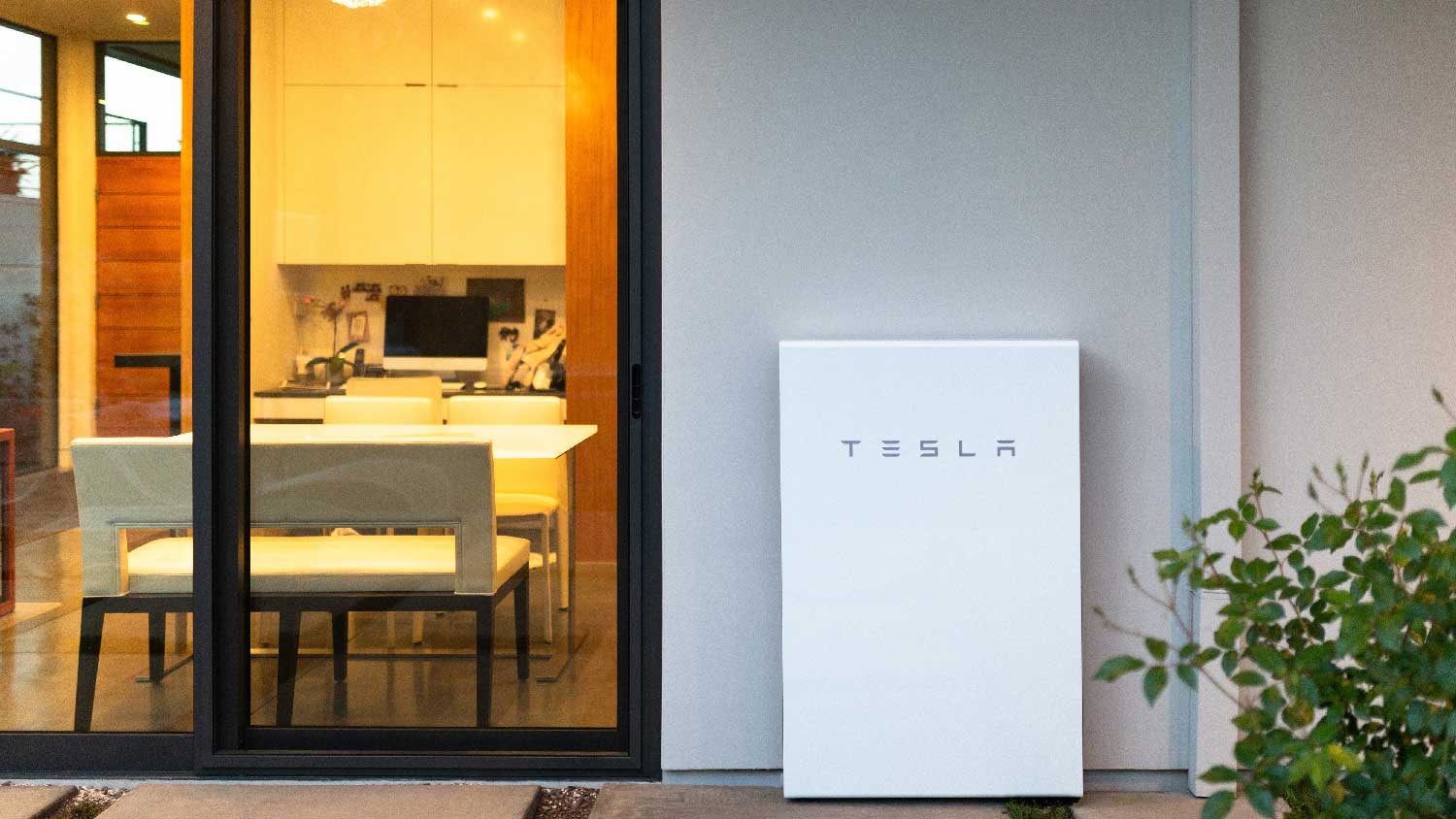
Discover the average solar panel inspection cost, what impacts pricing, and how to save. Get expert tips to keep your solar system efficient and safe.
Solar panel service costs depend on your project and location. Check with a local pro for your specific job.
To power the average home in Denver, you’ll need a 5-kW system.
Monocrystalline panels are preferred because of their high efficiency in warm weather.
Utilize microinverters to safeguard efficiency in wooded areas or mountain shade.
Denver averages 300 sunny days a year, making it an excellent place to utilize solar energy—especially as energy costs in the area continue to rise. That said, it is an up-front investment for a long-term gain. Solar panel installation costs $23,625 in Denver, on average, and most homeowners spend between $15,992 and $31,804. Learn about the potential costs of installing solar panels in the Mile High City as you create a budget.
Denver, Colorado, is transitioning its electrical grid to 100% renewable energy by 2030. If you want to make the jump, a few things will factor into the pricing. The size of the system and type of solar panels play the biggest role, but you’ll also need to pay for things like labor and solar panel maintenance.
The size of the solar system will impact your solar panel installation costs. The larger the output, the more you’ll pay. In Denver, the average solar system is around 5 kilowatts (kW), and homeowners pay $2.60 to $2.90 per watt. Your solar installer can help you figure out how many solar panels you need.
The table below shows average costs based on the size of your solar system.
| System Size (kW) | Average Cost |
|---|---|
| 3 | $7,800–$8,700 |
| 4 | $10,400–$11,600 |
| 5 | $13,000–$14,500 |
| 6 | $15,600–$17,400 |
| 7 | $18,200–$20,300 |
| 8 | $20,800–$23,200 |
| 9 | $23,400–$26,100 |
| 10 | $26,000–$29,000 |
| 12 | $31,200–34,800 |

When choosing the type of solar panel that works best for your home, consider three main factors: efficiency, life expectancy, and design. Denver’s high altitude receives more direct sunlight, which can mitigate some of the losses of lower efficiency panels, but you’ll also need to factor in the warm summers. Here’s how the type of solar panel can affect your cost:
| Type of Solar Panel | Average Cost per Watt | Pros | Cons |
|---|---|---|---|
| Monocrystalline | $1–$1.50 | Highest efficiency in a sunny climate like Denver | Less affordable, can struggle in shade |
| Polycrystalline | $0.90–$1 | More affordable | Less efficient, reduced performance in summer heat |
| Thin film | $0.70–$1 | Performs well in shade, efficiency won’t degrade as quickly in heat | Not as practical |
On average, most homes need anywhere from 20 to 25 panels to fully power a home, but this can range from as few as 15 to as many as 34. How many panels you need depends on the number of watts per panel, your energy consumption, and the efficiency of your panels. Your average solar panel will have an output of anywhere from 250 to 400 watts. The dimensions of your solar panels will also depend on the power output.
Solar system hardware only accounts for about 10% of the installation cost, but you’ll need to choose your mount. Fixed mounts or standard (but adjustable) mounts can help compensate for an inadequate roof pitch.
The more advanced the technology, the higher the up-front cost:
Fixed mounts: $10–$65 per mount
Adjustable mounts: $20–$200 per mount
Tracking: $500–$3,000 or more per mount (these mounts can self-track sunlight, leading to up to 45% more energy production)
Other materials you will need for a solar energy system include the parts in the table below.
| Hardware | Average Cost |
|---|---|
| String inverter | $1,500–$3,900 each |
| Microinverter | $150–$300 each |
| Power optimizer | $80–$150 each |
| Solar battery | $400–$15,000 |
Inverter: Converts direct current (DC) electricity to alternating current (AC) electricity
Microinverters: These work like a string inverter, but you’ll attach one to each solar panel to help mitigate losses from partial shading caused by trees, mountains, and buildings
Optimizer: Regulates currents so each panel is more energy efficient and prevents power loss
Battery: Stores excess energy from the system so homeowners can use it at night or during a power outage
Some systems use a single solar inverter or several microinverters that convert DC to AC electricity. Materials like the wiring and battery are often grouped with the package price unless you opt for add-on services.
Hiring an experienced pro to install your solar panels is key to making the most of this exciting new home addition. Budget $0.68 per watt for labor when you hire a solar panel installer in Denver, Colorado. This number doesn’t include permits or the cost of additional technology, such as special mounts, tiles, or shingles.
Solar panel installation does require electrical work. Though many solar panel installation companies have a licensed electrician on staff who specializes in solar panels, roofing contractors sometimes subcontract an electrician. The average cost of hiring an electrician is $65 to $100 per hour.
In Denver, you’ll need the right permits to install solar panels. This includes an electrical permit, a plumbing permit (if it’s a solar hot water system), and a zoning permit (if the panels aren’t flush against your roof). You’ll need to pass a solar panel inspection before you can unveil your new solar panels.
Permits and inspections add an average of $100 to $500 to solar panel costs, depending on the size of your system. Permit fees are capped at $500 for solar installations in the state of Colorado.
According to a Zillow study, installing solar panels can increase your home value by 4.1% on average. For example, the average home in Denver costs $546,000 and a solar panel system would add about $22,400 in value.
If you plan to stay in your home long-term, you should also factor in how much money solar panels save on energy costs. Most homeowners save around $1,380 per year—or about $34,500 over 25 years.
Once your solar panels are paid off, they're officially your property. If you move, you can reinstall them on a new rooftop. Alternatively, they can increase the value of your home by 3% to 4% and attract more buyers. They can also give your property a competitive edge in a buyers’ market.
The best way to save money on the up-front costs of installing solar panels is to take advantage of the Solar Investment Tax Credit (ITC) before it ends on December 31, 2025. The ITC allows homeowners to claim a federal tax credit equal to 30% of the price of their solar panel system installation.
For example, if your solar panel system costs $30,000 before the federal tax credit, you can save around $9,000. However, to benefit from this credit, your solar system has to be installed and working before the federal incentive ends.
The ITC, also known as the Residential Clean Energy Credit, was originally extended through 2032 as part of the Inflation Reduction Act. However, new federal legislation (the Big Beautiful Bill Act) signed into law on July 4, 2025, terminated the credit early. The Solar Energy Industries Association® (SEIA) outlines the high-level policy changes and restrictions on energy tax credits.
Additionally, the extra power you choose not to store in a battery can be sent back to the grid. Your local utility company will compensate you for that power, but the amount will vary. You can check the Utility Rate Database on Open EI to estimate how much you can expect to receive for generating excess energy.
The City of Denver has several local incentives to help offset the cost of solar panels. Some of the most popular include:
Switch Together Denver: Families earning at or below 120% of the area median income may be eligible to receive a $4,000 rebate through Switch Together Denver, in partnership with the nonprofit Solar United Neighbors (SUN).
Solar*Rewards Program: Income-qualified Xcel Energy customers and those in disproportionately impacted communities may be eligible to receive a $1 per watt rebate for their solar system.
Tax exemptions: Colorado offers a sales and property tax exemption for solar panel installation.
Net metering: Investor-owned utility companies are required to offer net metering, so the state has a robust program with many of the largest utility providers.
Home is the most important place on earth, which is why Angi has helped more than 150 million homeowners transform their houses into homes they adore. To help homeowners with their next project, Angi provides readers with the most accurate cost data and upholds strict editorial standards. We survey real Angi customers about their project costs to develop the pricing data you see, so you can make the best decisions for you and your home. We pair this data with research from reputable sources, including the U.S. Bureau of Labor Statistics, academic journals, market studies, and interviews with industry experts—all to ensure our prices reflect real-world projects.
Want to help us improve our cost data? Send us a recent project quote to [email protected]. Quotes and personal information will not be shared publicly.
From average costs to expert advice, get all the answers you need to get your job done.

Discover the average solar panel inspection cost, what impacts pricing, and how to save. Get expert tips to keep your solar system efficient and safe.

Get a detailed estimate of solar farm costs. Learn about average prices, key cost factors, and ways to save when planning your solar farm project.

Discover the Tesla Powerwall installation cost, including average prices, cost factors, and tips to help homeowners budget and save on their Powerwall project.

Solar inverters are a crucial part of your solar energy system. This guide breaks down solar inverter costs so you can estimate the price of your project.

If your solar panels need to be cleaned, hire a solar panel repair professional to conduct solar maintenance services.

Discover the top 10 states with the best infrastructure for solar panels and find out if solar will work for your home.